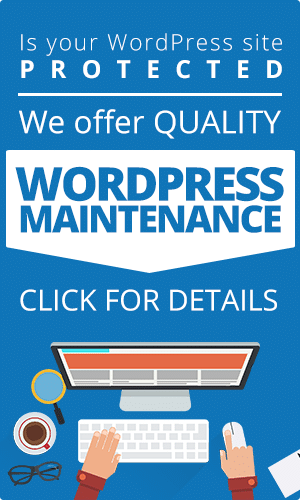SEO vs PPC: Which Is better For marketing?
The short answer is that it’s a complex question. In 2019, SEO generated 33% of traffic to e-commerce sites, while paid searches accounted for 32% of e-commerce traffic. Both methods will drive visitors to your website, but which to choose depends on your goals, target market, and situation.
In this article, we’ll examine the differences between SEO and PPC marketing. We’ll also go over the advantages and disadvantages of each to provide you with actionable information on which to base your decision.
What Is the Difference Between SEO and PPC?
Search engine optimization (SEO) entails strategically optimizing your web pages to rank organically in search results. It takes time to see results as you must convince the search engine algorithms that your website is the most credible fit for the search term.
With pay-per-click (PPC) marketing, you effectively pay to cut the line. Your advert appears in the list of sponsored posts at the top of search engine results, and you pay when a visitor performs a predetermined action.
Where should you focus your attention?
For most companies, the answer is a combination of both strategies. Many firms use PPC marketing to boost traffic while they optimize their sites. To better understand the correct answer, we should look at the advantages and disadvantages of both methods.
The Advantages of SEO
In 2019, around 25.8% of internet users actively utilized ad blockers. This software effectively blocks all kinds of paid advertising, making it essential to drive organic traffic. SEO is the best viable alternative.
It Drives Organic Traffic
SEO doesn’t rely on clever advertising tricks or sponsored posts. Instead, it depends on optimized content to rank naturally in search engine results. Every piece of well-drafted content improves your site’s credibility and helps with attracting organic traffic.
Long-Term Results
Running a clever PPC ad campaign is an effective way to market. It is, however, a short-term solution. When you end the campaign, the traffic it generates stops.
An SEO strategy, however, centers on providing valuable information for would-be clients. This may consist of blog posts, tutorials, and other credible content. The information remains active online and may continue to attract traffic years after its publication.
SEO Is Less Expensive Over Time
Assuming that you produce stellar content, SEO is more cost-effective than PPC marketing. The initial cost of creating blog posts and tutorials is outweighed by the free traffic they generate over time.
Instead of consistently investing money into advertising, you simply pay for the upkeep of your website.
The Potential for Going Viral Is Higher
Unless an advert is edgy or extremely funny, the chances of people sharing it are limited. Text ads, in particular, are unlikely to go viral.
However, well-crafted content is a different story. People are more likely to share an interesting blog post or helpful video.
The Disadvantages of SEO
Why not ditch PPC altogether? There are a few downsides to relying solely on SEO.
Ranking Takes Time
It can take months to start ranking in the top ten results. You have to convince the search engines that your website is credible. To do this, you need visitors who not only click through to your pages but stay on them for a reasonable time.
Expertise Matters
People today value the opinion of subject matter experts. To become an authority on the topic, you must produce unique content, promote it, and share it. You have to research your subject and back up your opinions with data.
Tapping out a quick post without putting any thought into it doesn’t work.
The Rules Change
Search engines use hundreds of metrics to determine your page rank. They’re also notoriously tight-lipped about what factors they measure, so companies must learn through trial and error. Algorithmic updates can decimate your traffic overnight.
The Advantages of PPC
PPC advertising can refer to marketing via search engines or by social media. You may use it to draw attention to products or content.
Quick and Relatively Easy
Fine-tuning a Google Ads campaign can take some practice, but it’s a quick and easy way to drive traffic. Simply create your campaign around your targeted keywords or audience, and publish your ads.
Your advert appears immediately and can drive traffic from day one.
Highly Targeted Results
With PPC, you can clearly define your target audience. You may identify qualified leads through geography, demographics, and many other criteria. Fine-tuning your campaigns allows you to bring in the people who are ready to make a buying decision.
Quick Feedback
PPC gives you instant results. You’ll see within hours who has clicked on your adverts and can run A/B tests to improve your campaigns further.
SEO creates fewer definable outcomes as it doesn’t link to a specific campaign.
The Disadvantages of PPC
PPC provides a quick solution for those who want to drive traffic to their websites, but it’s not perfect.
PPC Can Be Costly
With PPC, you’re competing with your direct and indirect competitors for the key phrases you select, which drives up the price you pay per click. The more popular the keyword, the higher you must bid to ensure your adverts are featured.
The cost per click adds up relatively quickly. In the beginning, your spending may outweigh the benefits that you receive.
PPC Can Become Stale
If people see the same ads over and over again, they tend to shut them out. To keep your campaigns fresh, you’ll have to change up the images and copy regularly.
Short-Term Results
Your traffic stops when your campaign does, so you have to keep investing in new campaigns.
When PPC Might Work For You
When You’re an Industry Disrupter
To excel at SEO marketing, you need to target topics that many people are researching. This may prove difficult for a startup with a disruptive product.
Bitcoin is a good example here. Fifteen years ago, the term “cryptocurrencies” was virtually unused, and you’d have received very little organic traffic with content based on the term.
You Have a Time-Sensitive Offer or Launch
In such cases, you cannot wait for organic traffic and need more of a targeted approach.
When SEO Might Work for You
When Your Target Market Avoids Commercial Content
Commercial content can prove off-putting for web users. Very few people choose to click on adverts when researching solutions for a problem they have. In such cases, it’s more effective for companies to provide informational content to help the client make a decision without marketing a product.
You Plan to Flip Your Website
If you’re in the business of building up sites to sell, organic traffic is particularly important. Buyers will value your website more if it has a steady stream of search engine traffic. They don’t usually want to spend time creating PPC campaigns.
Conclusion
SEO and PPC marketing each have a special place in the marketer’s toolbox. As discussed above, PPC can produce almost immediate results if you desperately need leads. But in the long term, if your market allows, it would be better to plan to optimize your website so you can benefit from all that organic traffic. This will allow you to not limit your marketing since you will no longer be paying per click and more importantly, your ranking will have lasting effects until other competitors catch up and out rank you.
In other words, you can potentially get a better return on your investment with SEO because you can still be spending the same amount and get unlimited number of visits versus with PPC, if you want to get more clicks, you will have to spend more.
Which is more important depends on the company’s current standing and its goals. For a relatively new website or product launch, PPC provides instant traffic.
Another option is also utilizing a combination of both SEO and PPC. If you have the budget, you can still have Ads that will appear above the organic results and if you have invested in SEO as well, your website can also appear below the Ads giving you double the exposure. If certain people skip the ads, then they will more than likely see your website in the organic results. If they are the type that click on ads, then your website is there too. Another side effect of this is that if people see your website twice on the first page of Google, then you have twice the probability of them clicking on your website.
Over the long term, SEO provides organic results and allows you to reduce your marketing spend overall. Correctly utilized, optimization can build a steady stream of traffic to your website.
Need help with your digital marketing? Checkout our affordable SEO services and get in touch today. We’d be honored to help!






